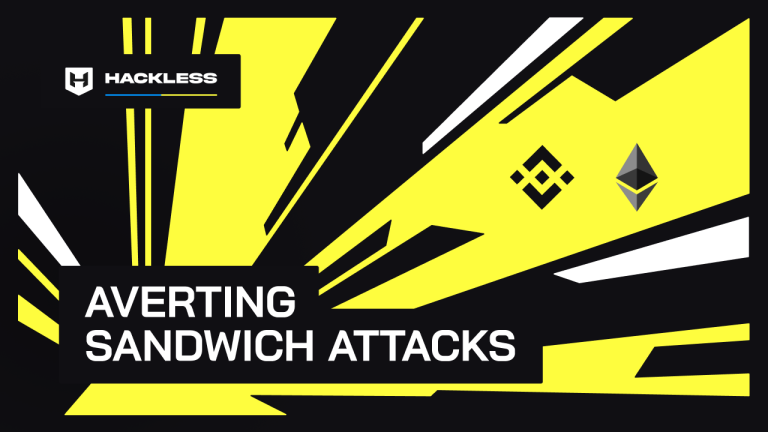
The anonymous MEV bot operator’s best day was April 18, where he profited about $950,000.
An anonymous Maximal Extractable Value (MEV) bot operator has cashed in well over $1 million this week by executing “sandwich attacks” against buyers and sellers of two new meme coins.
The wallet address, linked to the Ethereum Name Service (ENS) domain “jaredfromsubway.eth,” made $950,000 from the sandwich attacks on April 18 and profited about $300,000 and $400,000 on April 17 and 19, respectively, according to an April 19 tweet from nonfungible token data platform Sealaunch.
After closing the day of yesterday with a profit close to $1M, jaredfromsubway.eth MEV bot is already profiting close to $400K today pic.twitter.com/VxouxAc59s
— sealaunch.xyz (@SeaLaunch_) April 19, 2023
The bot’s ENS domain is a likely tongue-in-cheek nod to the popular sandwich chain and its disgraced former spokesperson Jared Fogle.
Over a 24-hour period between April 18 to 19, 7% of all Ethereum gas fees were spent by the MEV bot, Sealaunch explained in a separate post.
A large proportion of the profits came from attacks on trading activity relating to two new meme coins, Pepe (PEPE) and Wojak (WOJAK), which has helped propel jaredfromsubway.eth to the become the largest gas guzzler over the last day and week, crypto researcher Matt Willemsen explained:
Wondering why gas is so damn high?
— Matt Willemsen (@matt_willemsen) April 19, 2023
jaredfromsubway.eth (lmao) is absolutely cleaning up by sandwich-attacking $PEPE and $WOJAK trading activity. They are #1 gas spender over the past day and week.
MEV sandwich bots on Ethereum have made $100M+ since the weekend. https://t.co/qhxyxlac20
A sandwich attack occurs when an attacker “sandwiches” a victim’s transaction between their own two transactions in order to manipulate the price and profit from the user.
This is possible because the victim’s transaction is first sent to the mempool where it waits to be added to the next block. In the meantime, the attacker sets one transaction with a high gas fee — to ensure it is accepted first — and another transaction with a lower gas fee to ensure it is accepted after the victim's transaction.
The attacker profits by buying the victim’s token at a price cheaper than market value, then sells it within the same block — taking in the difference between the revenue from the transaction minus the gas fees.
The large profits pocketed by jaredfromsubway.eth came from nearly $1.2 million being spent on gas fees between April 18 and 19, according to data shared by Thomas Mattimore, head of platform at the Reserve Protocol.
The MEV bot operator has spent over $7 million in gas fees across 180,000 transactions, according to Sealaunch.
While some are finding the humor in the MEV bot’s domain name and actions, not all are happy.
Related: Tether blacklists validator address that drained MEV bots for $25M
One analyst for on-chain analytics firm Glassnode questioned the “value” of the work jaredfromsubway.eth is providing to the world.
Other Twitter users went one step further, expressing their hatred and frustration toward the MEV bot operator.
when i see jaredfromsubway.eth on the shitcoin i just aped my entire networth into pic.twitter.com/heK4bnbikf
— DRT (@pepeDRT) April 19, 2023
According to MEV Blocker, MEV bots have extracted more than $1.38 billion from Ethereum users attempting to trade, provide liquidity and mint NFTs.
Several MEV Block projects have been launched in recent months to help protect Ethereum users from sandwich attacks.
Magazine: Magazine: ‘Account abstraction’ supercharges Ethereum wallets: Dummies guide


